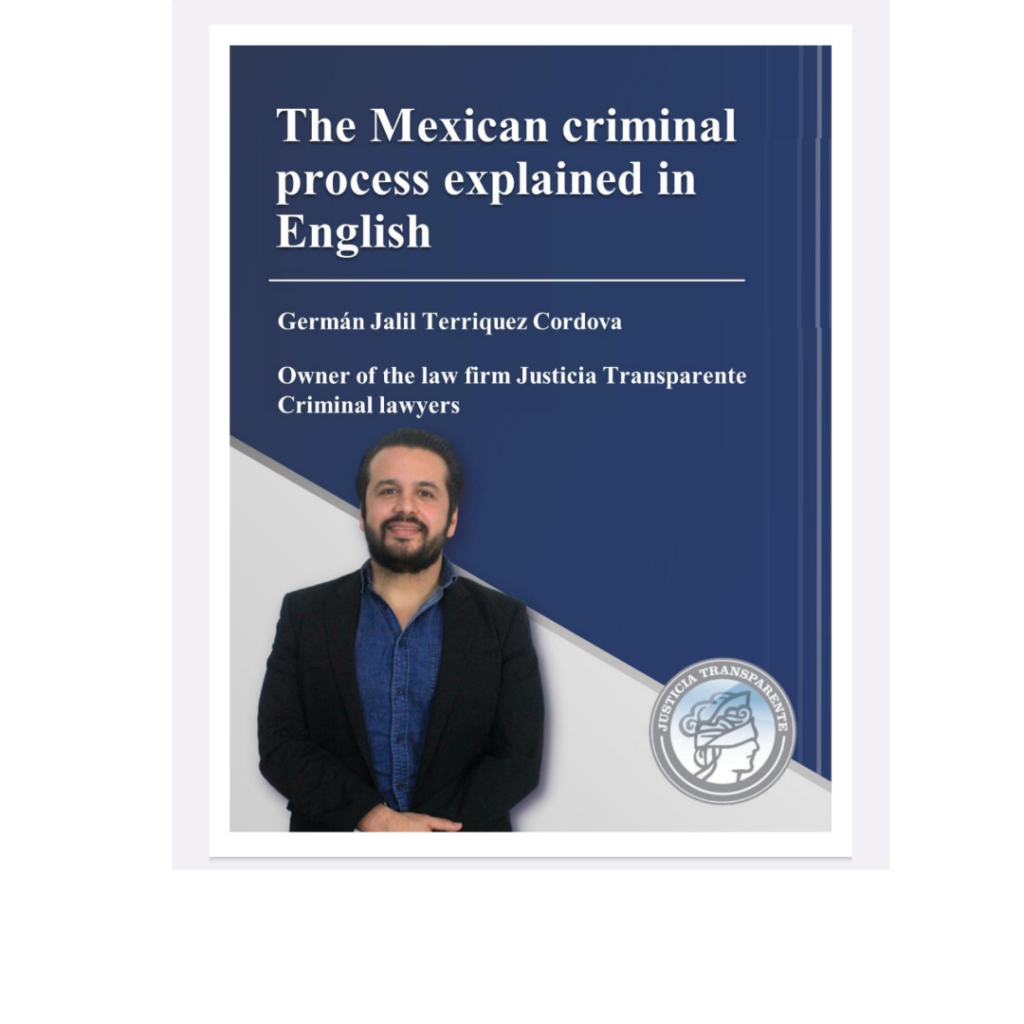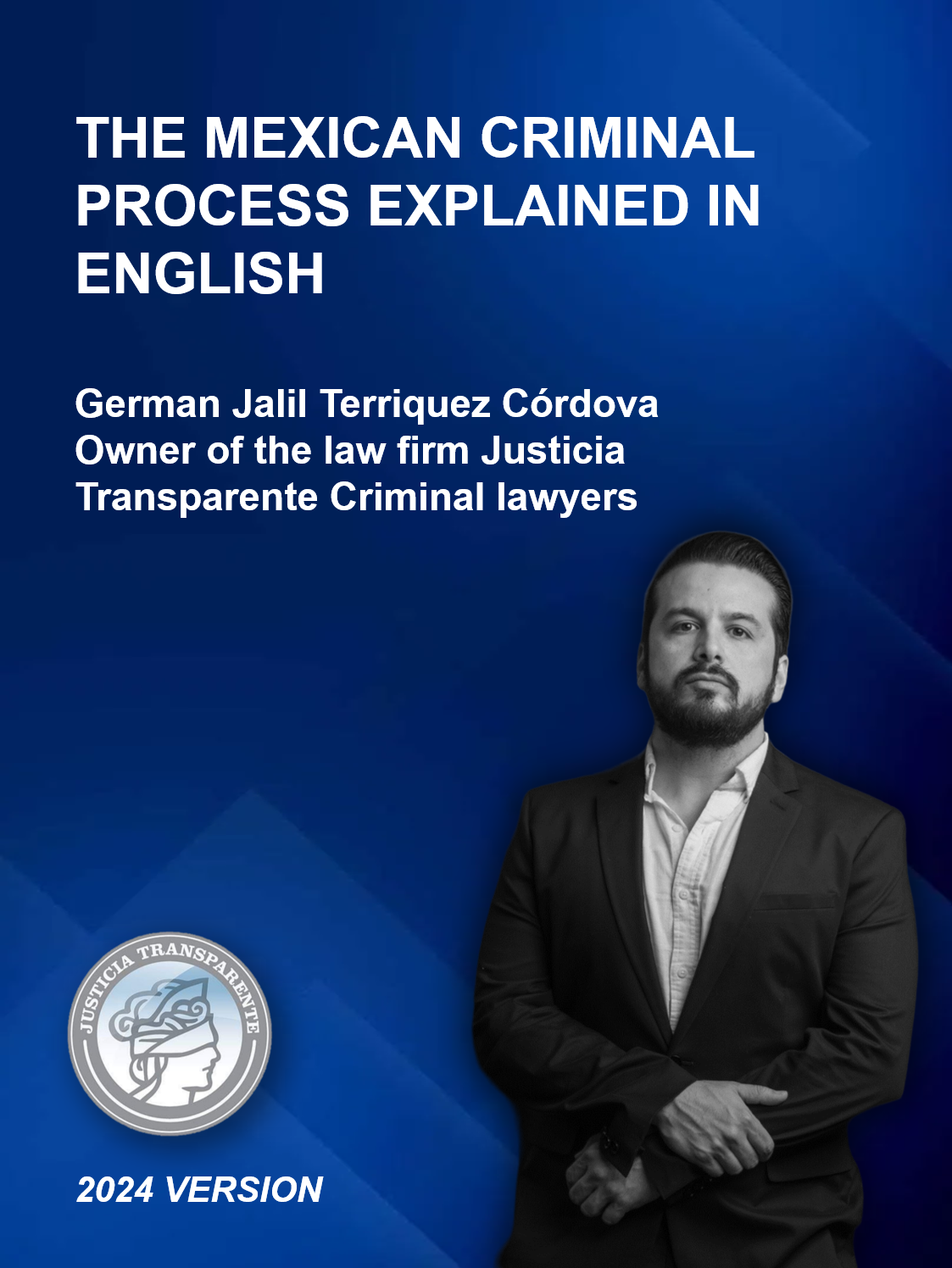
Bail in the Mexican criminal process, often called “bail” in Spanish, is a term that is now legally known as “precautionary measures” consists of mandates that the criminal judge imposes on people to carry out their process in freedom, these measures They are imposed depending on the type of crime, and the particular circumstances of each case, which we will explain later.
So in Mexico, bail can be viewed as judicial actions that are taken in the context of a criminal process to guarantee the appearance of the accused (accused) at trial, protect victims and witnesses, and avoid obstruction of justice. These measures seek to balance the presumption of innocence of the accused with the need to maintain public order and ensure that the criminal process is carried out appropriately.
Existing precautionary measures in Mexico
- I. The periodic presentation before the judge or before another authority designated by the judge;
- II. The exhibition of a financial guarantee;
- III. The seizure of property;
- IV. The immobilization of accounts and other values that are within the financial system;
- V. The prohibition of leaving the country, the town in which you reside or the area without authorization
- territory established by the judge;
- VI. Submission to the care or supervision of a specific person or institution or
- confinement to a specific institution;
- VII. The prohibition of attending certain meetings or approaching certain places;
- VIII. The prohibition of living together, approaching or communicating with certain people, with
- victims or offended parties or witnesses, as long as the right of defense is not affected;
- IX. Immediate separation from home;
- X. Temporary suspension in the exercise of office when a crime committed by
- public servers;
- XI. The temporary suspension in the exercise of a certain professional or work activity;
- XII. The placement of electronic locators;
- XIII. The protection in your own home with the modalities that the judge provides, or
- XIV. Preventive detention.
Difference between bail and precautionary measure
Bail is one of the 12 precautionary measures that serves to guarantee that a person accused of a crime attends the appointments made by a criminal judge.
Likewise, the measures are any of the 12 indicated above, all of them have the same purpose, that is, to ensure that the free people appear at all summonses issued to them by the criminal judge.
Accused a relative of a crime in Mexico? Do you need to know if it is a crime to bring weapons into Mexico? Do you need to know if it is a crime to bring marijuana into Mexico? The prosecutor is accusing me of having committed a crime that I did not commit? Has your loved one been in jail in Mexico for years?
If you are in one of these situations, hire an online consultation.
In what type of crimes does bail apply?
As a general rule, in all crimes, precautionary measures are taken to ensure that a person is released from prison. However, Mexico establishes an exception in some crimes, where it is established that people prosecuted for these crimes must remain in prison, these are crimes considered serious in Mexico that establish the exception to the rule.
- First and Second Homicide: The intentional killing of another person.
- Kidnapping: The illegal deprivation of a person’s liberty for the purpose of extortion or with the purpose of causing harm.
- Femicide: The murder of a woman for reasons of gender, with specific characteristics established in the legislation.
- Organized Crime: Participation in organized crime activities.
- Drug trafficking: Crimes related to the trafficking and distribution of illegal drugs.
- Robbery with Violence: Robbery in which violence is used or threatened.
- Corruption of Minors: Participation in criminal activities involving minors.
- Extortion: Demanding money or property from another person under threat.
- Human Trafficking: The exploitation of people for sexual or labor exploitation.
- Rape: Sexual assault with forced penetration.
- Sexual Abuse against Minors: Sexual crimes committed against minors.
It is important to mention that currently in Mexico some judges consider that applying preventive detention violates the human rights of people, so in some crimes indicated in this list there is the possibility of recovering freedom, however in crimes such as first degree homicide , kidnapping or organized crime, it will be difficult to be released. released.
People who may be candidates for bail or precautionary measures
Again, any person can agree to pursue their process in freedom, however in some of the cases we mention below freedom could be lost.
- Not having domicile or roots in the place where you were arrested: It can be dangerous for the judge to release a person, for example a person from New York who was arrested in Tijuana, because releasing him would most likely mean that he would not appear again at the hearings to which he is required.
- The behavior of the person before and after the commission of the crime: It is important to note that if the person accused of a crime has a criminal record or investigations subsequent to the crime for which he is being investigated, he could be punished with prison during the process.
- Contempt of previously imposed measures: If during the criminal process a minor measure was imposed on you, such as going to sign and you stopped doing so, this could lead to the judge punishing you with prison.
- Failure to attend to summons from the prosecutor or the judge: If you receive a notification to go to the prosecutor or the judge and you do not go, you may be a candidate for losing your freedom.
The Mexican criminal process explained in English


